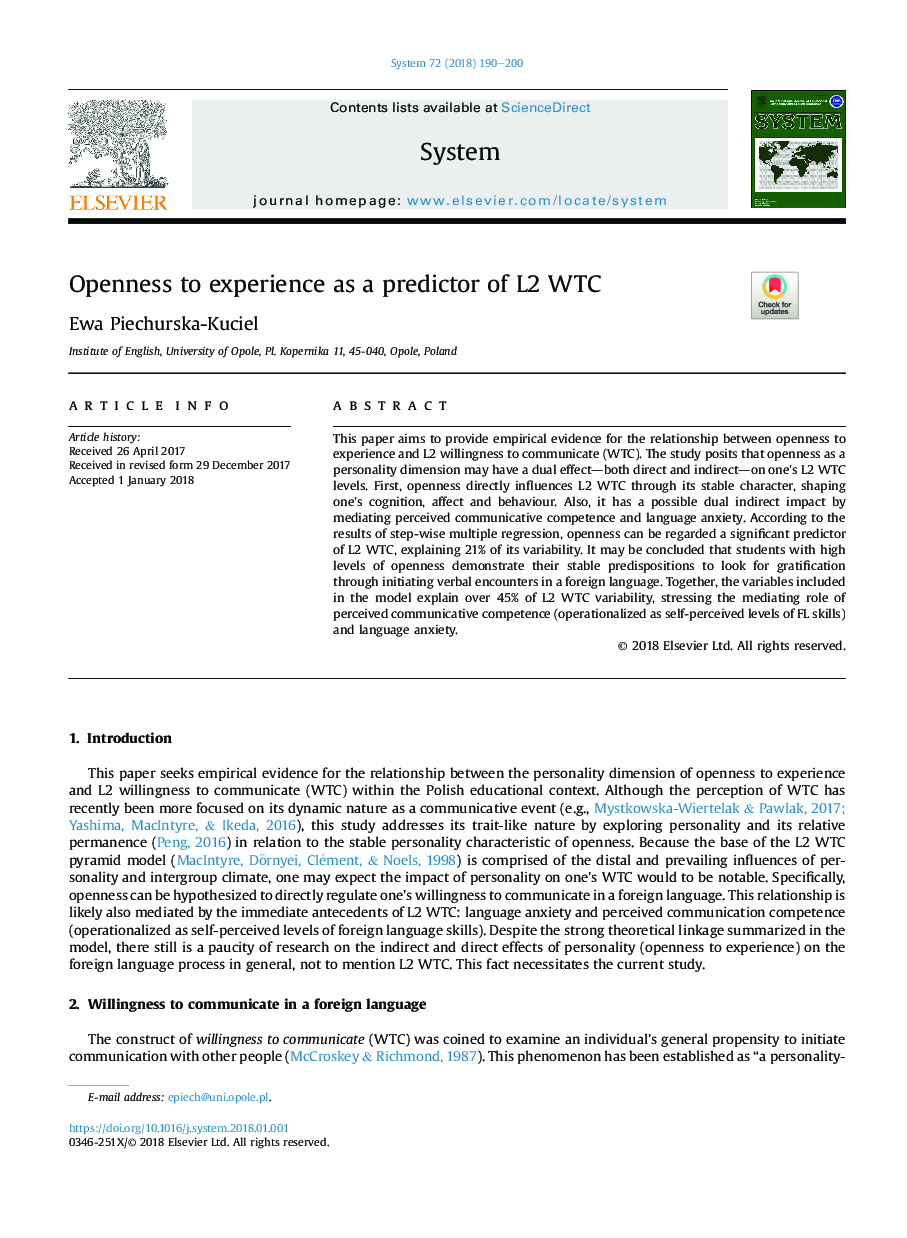| Article ID | Journal | Published Year | Pages | File Type |
|---|---|---|---|---|
| 6849423 | System | 2018 | 11 Pages |
Abstract
This paper aims to provide empirical evidence for the relationship between openness to experience and L2 willingness to communicate (WTC). The study posits that openness as a personality dimension may have a dual effect-both direct and indirect-on one's L2 WTC levels. First, openness directly influences L2 WTC through its stable character, shaping one's cognition, affect and behaviour. Also, it has a possible dual indirect impact by mediating perceived communicative competence and language anxiety. According to the results of step-wise multiple regression, openness can be regarded a significant predictor of L2 WTC, explaining 21% of its variability. It may be concluded that students with high levels of openness demonstrate their stable predispositions to look for gratification through initiating verbal encounters in a foreign language. Together, the variables included in the model explain over 45% of L2 WTC variability, stressing the mediating role of perceived communicative competence (operationalized as self-perceived levels of FL skills) and language anxiety.
Related Topics
Social Sciences and Humanities
Arts and Humanities
Language and Linguistics
Authors
Ewa Piechurska-Kuciel,
